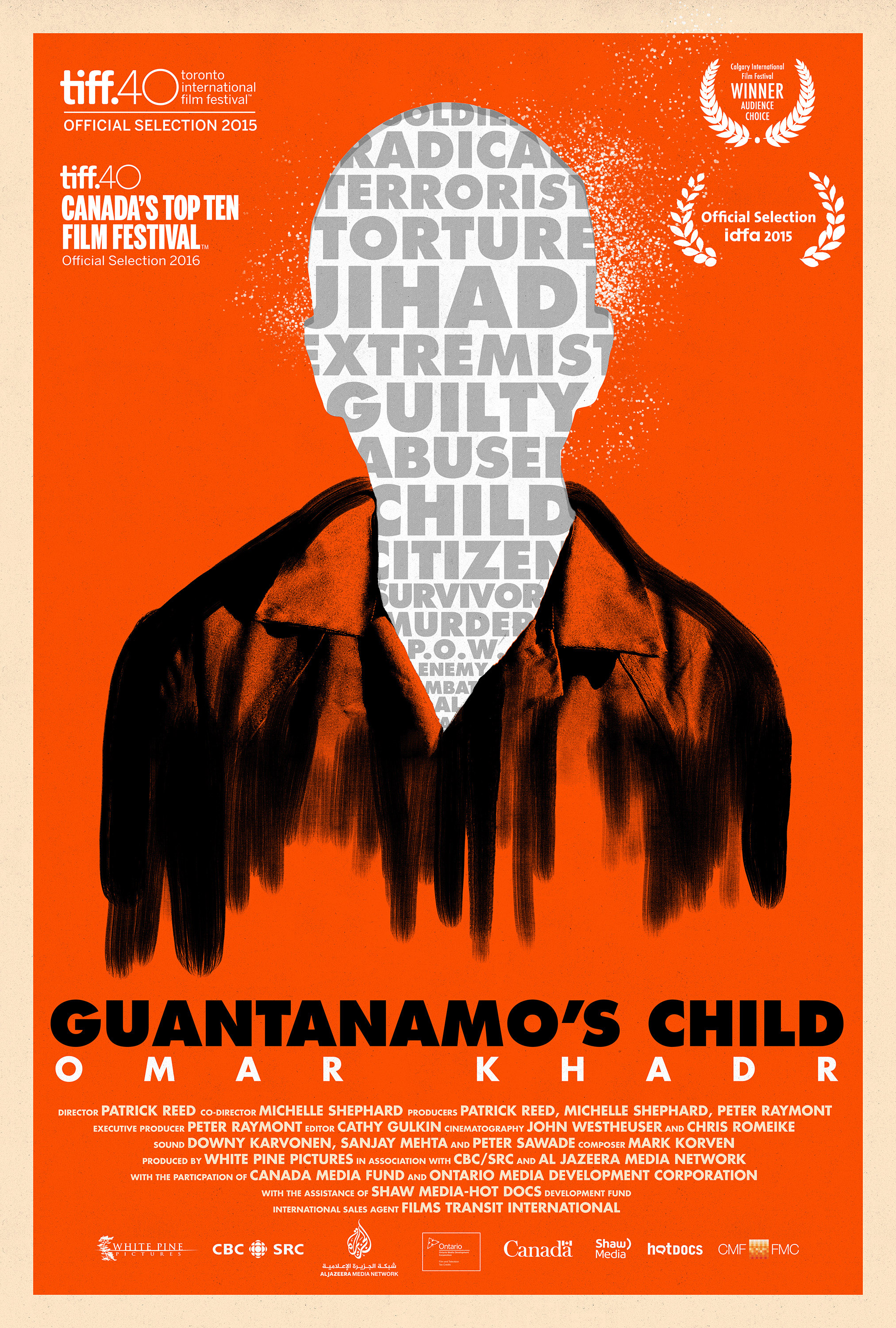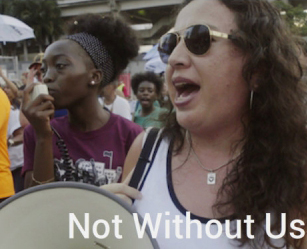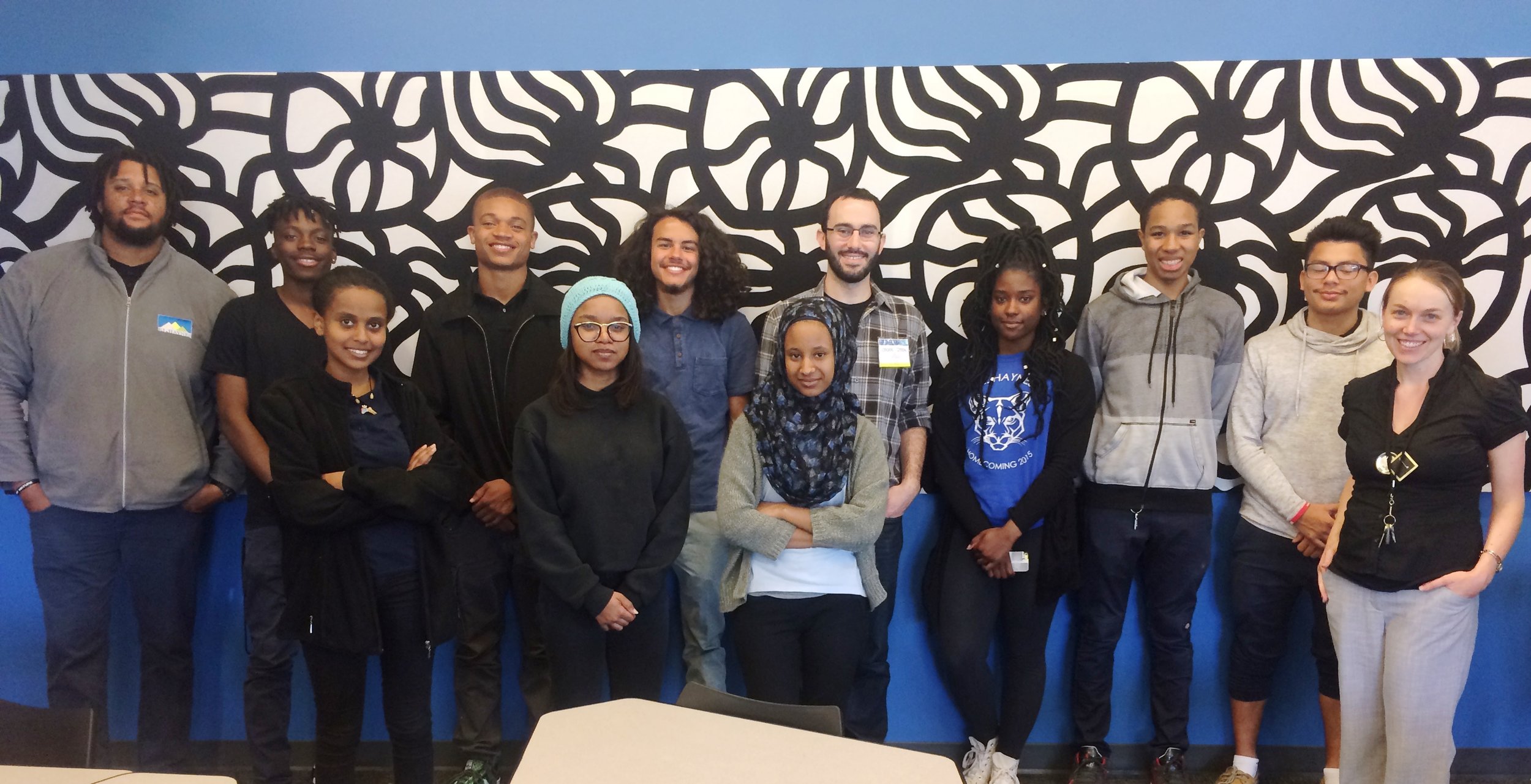Filmfest DC 2016 Goes to D.C. Classrooms
On this fifth year of Teaching for Change’s partnership with Filmfest DC: The Washington, DC International Film Festival, we brought five of the films to D.C. classrooms in April of 2016.
Here are brief descriptions of the films and the filmmakers’ school visits.
Guantanamo’s Child: Omar Khadr
In July of 2002, Toronto-born 15-year-old Omar Khadr was wounded and captured by U.S. forces in Afghanistan and sent to the Guantanamo Bay detention camp. Considered by some to be a child soldier and accused by many others of terrorism, Khadr would find his next 13 years to be a long, torturous battle for freedom.
Film co-director Michelle Shephard spoke to two classes at Cesar Chavez Public Policy Public Charter School on April 18. Chavez teacher Mateo Samper coordinated the previewing of the film for multiple classes and organized follow up activities. The students asked questions they had prepared while previewing the film, such as:
How did it feel when you met him?
Does he have PTSD?
What was the most difficult thing about making the film?
Is it dangerous making movies like this?
They also shared their feedback about the film, encouraging other eighth grade teachers to share it with their students. Here are some of their reflections:
The documentary should be shown to eighth graders across America. This is because of how informative the documentary is and how as a student you actually get the birds eye view of who Omar is which is a very big piece of America’s history and visual evidence how the world changed after 9/11. The very big scene that stuck with me was when Omar’s picture of the two holes where he was shot. —Steven Morales
People in middle school need to know about this movie because we are at the age where they should know about these world problems and know about what is happening to other people so that when they grow up they might want to help with these world problems. This was a good movie to me. The scenes that stuck with me the most was him in the jail and when it snowed him injured. —Kelly Leak
I give this movie a huge thumbs up because seeing this movie is like actually being there because you get to hear someone that was actually involved and seeing it from their point of view. —Anonymous
The boy was close to our age when he got arrested and we can relate to his feelings.—Anonymous
Motley’s Law
Kimberley Motley, from Milwaukee, works as a defense lawyer in Kabul, Afghanistan. She is the only foreign lawyer with a license to work in Afghan courts, not to mention, the only woman. With her Afghan assistant Khalil, Motley defends western and Afghan clients accused of criminal offenses. Read more about the film.
Kimberley Motley, the protagonist of of Motley’s Law, visited Paul International High School on April 20, hosted by Humanities teacher Ms. Merriweather.
The students asked Motley lots of questions about how she was so courageous in the face of danger. They commented on the discrimination faced by women in Afghanistan. Motley reminded them that sexism exists everywhere, pointing out the problems with domestic abuse and wage discrimination that women face here in the United States. She also referenced the recent legislation against transgender bathrooms in North Carolina.
In the closing reflections, student Diamond Gillespie wrote, “Ms. Motley inspires me because I want to study law and help people in need.”
Not Without Us
In Not Without Us, seven grassroots activists from around the world head to Paris for the UN Climate Talks. Their moving and personal journeys as activists has led them to this point, and they want world leaders to feel the pressure. A deal was signed, but the question still remains: can the COP21 agreement stop catastrophic climate change and if not, then is it up to us? Read more about the film.
Filmmaker Mark Decena visited Rebecca Wenstrom’s middle school class at Two Rivers Public Charter School on April 22. In her request for the visit, she noted, “We are teaching an intensive, semester-long investigation into climate change as part of an interdisciplinary Earth science ‘expedition.’ Students’ work culminates in a series of interviews with climate change ‘interrupters,’ whom they will be profiling for a student-made website on the power of the individual to create global change.”
City of Trees
Brandon Kramer of City of Trees met with students in Ms. Barrie Moorman’s Sociology course at E.L. Haynes Public Charter School on April 20. The film documents a grant funded project by Washington Parks & People to help long-term unemployed residents find work through a new green job training program. What sounds like a simple goal — providing employment and planting trees — becomes complicated by issues of race and class. Read more about the film.
Brandon Kramer and students.
The Haynes students had been reading different texts exploring themes of race, identity, intersectionality, and power. After screening the film, they made connections between course texts and the film through questions about:
who has access to space,
how race affected the experience of making the film and the outcomes of the program itself,
for whom spaces are improved and the implicit and explicit messages sent to communities when outside organizations come in, and
the way intent vs. impact played out both for the film crew and the Washington Parks & People staff.
The film company tweeted,
Yesterday Brandon met students @ELHaynesPCS + answered their insightful questions about CITY OF TREES! #filmfestdc pic.twitter.com/4WthehwERY
— CITY OF TREES (@CityofTreesFilm) April 21, 2016
Thanks to the awesome students for a great discussion about CITY OF TREES! @ELHaynesPCS@filmfestDC@teachingchangepic.twitter.com/4d5qlVSDzg — CITY OF TREES (@CityofTreesFilm) April 21, 2016
Pamela Yates’ documentary, Rebel Citizen offers a revelatory tour of two time Oscar-winning cinematographer Haskell Wexler’s political documentary work, letting the veteran artist and activist share his vision of how to be a citizen in the world. Viewers learn about one of his first documentaries, The Bus from 1963, filmed with civil rights activists as they traveled the country on their way to the 1963 March on Washington. Read more about the film here.
Students in Ms. Lashaunda Robinson’s seventh grade world history classes at Cesar Chavez Public Charter School watched the film and prepared questions for the filmmakers. Here are just a few of the questions they prepared.
How do you think your documentary about him turned out? Are you guys proud of the message?
How long did it take to make?
How old were you when you knew you wanted to work in this field?
Did Mr. Wexler think that making these films about social issues would change
something in the society?What was both yours and Mr. Wexler’s favorite part about making this film?
What age group was this film made for?
Did he ever get in trouble for sharing serious information in his films, like what he shared about the torture in Brazil?
Did you all get a lot of support to make this film?
Were you scared you would get in trouble showing some of the images and discussion about serious things that happened in the world when you showed his documentaries and films of your own?
Regretfully, the students did not get a chance to dialogue directly with the filmmakers. The visit had to be rescheduled a few times, once due to school-wide high stakes testing. Nevertheless, the students gained a lot from viewing and discussing their film with their teacher.









